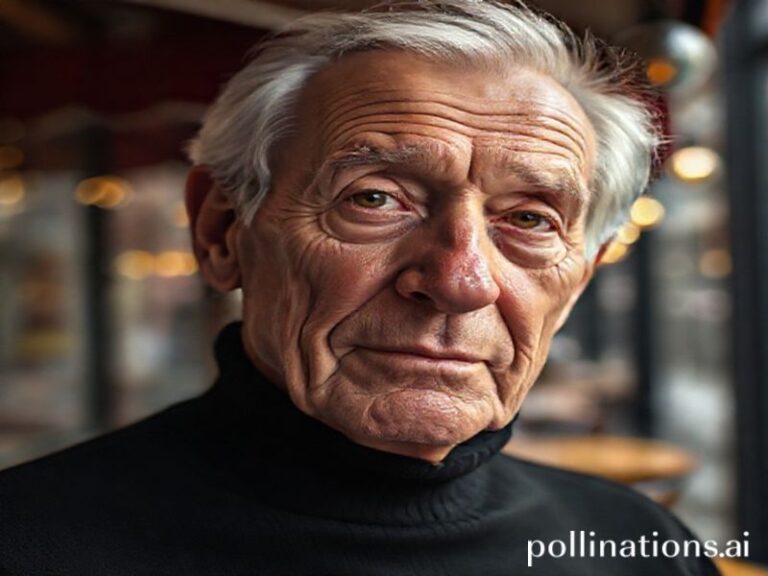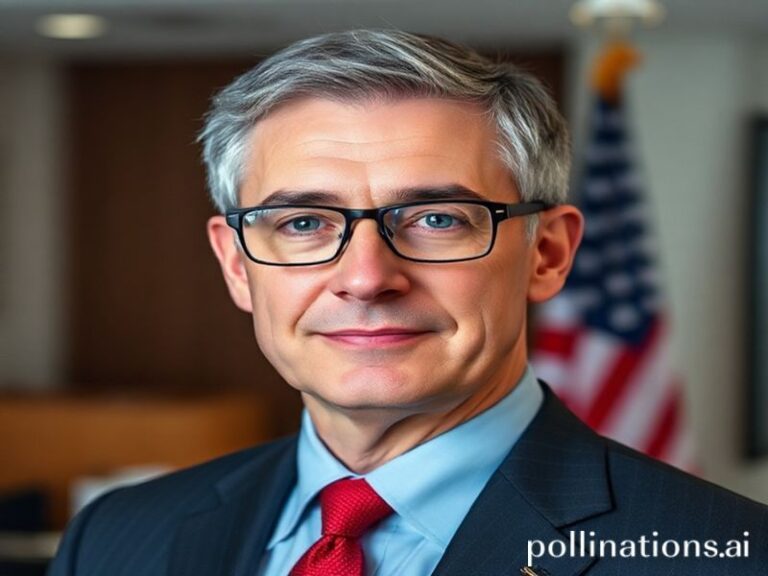The Global Echo of Ben Griffin: How One Ex-SAS Whistleblower Became the World’s Most Unwanted Conscience
Ben Griffin and the Global Ripple of One Man’s Quiet Rebellion
By Our Correspondent, Somewhere Between Geneva and Despair
The name “Ben Griffin” does not, at first blush, ring many international bells. It lacks the Hollywood sheen of a Zelensky or the market-moving swagger of a Musk. Yet in the smoky backrooms of security conferences from Warsaw to Wellington—where PowerPoint slides are weapons of mass distraction—Griffin has become shorthand for a very particular twenty-first-century headache: the ex-elite soldier who refuses to stay politely ex. Think of him as the ghost at the geopolitical banquet, rattling his dog tags just as the foie gras arrives.
Griffin first drew global attention in 2008 by resigning from the United Kingdom’s Special Air Service (SAS) and immediately denouncing “extrajudicial killings” and “torture” he says he witnessed in Iraq and Afghanistan. To the British Ministry of Defence, he was a disgruntled operator with timing as inconvenient as a drone strike on a wedding. To human-rights NGOs, he was a rare canary with a chest full of medals, tweeting inconvenient truths. To the rest of the planet—busy doom-scrolling inflation rates and heat-wave selfies—he was, at best, background noise.
Fast-forward fifteen years and Griffin’s particular brand of quiet rebellion has metastasized into something larger: a transnational irritant that no amount of official bluster can quite swat away. Courts in Berlin now cite his testimony when refusing to extradite Afghan detainees to the United States. Australian investigative journalists lean on his maps of covert black sites when charting the archipelago of outsourced agony. Even the famously neutral Swedes have invited him to lecture cadets on “the moral injuries of modern war,” which is Swedish for “please don’t end up in The Hague.”
The irony, of course, is delicious. The same special-forces fraternity that once prided itself on omertà now finds its WhatsApp groups subpoenaed and its alumni speaking in tongues to war-crimes investigators. Griffin didn’t invent the leak, but he perfected the art of leaking while wearing a regimental tie—an aesthetic betrayal that hurts Whitehall more than any hoodie-clad hacker ever could.
Meanwhile, the global security bazaar has adapted in predictably cynical fashion. Private military companies now insert “Griffin clauses” into employment contracts, threatening punitive damages for any operator who develops a conscience after brunch. The United Arab Emirates, ever the innovator, has simply hired entire battalions of Latin American veterans who can’t spell “Geneva Convention,” let alone litigate it. And Washington, bipartisan as ever, has responded by classifying more battlefield footage than Netflix green-lights reality shows. Out of sight, out of Senate hearing.
Yet the Griffin effect keeps seeping through the cracks. Last month, a former French Foreign Legion sniper told a Montreal podcast that his unit routinely handed prisoners to “les Anglais spéciaux”—a deliciously vague euphemism that sent Canada’s parliament into ritualistic self-flagellation. The chain of custody, like the supply chain for everything else, is now global, fragile, and mortally embarrassed by daylight.
Human nature being what it is, the world’s response has been to weaponize amnesia. Britain’s freshly minted Northern Ireland Troubles Act offers blanket immunity for historic abuses; Australia shelves its Brereton war-crimes report like a remaindered cookbook; and the International Criminal Court, perpetually broke, contemplates a GoFundMe. We have, in short, built a planetary machine designed to forget faster than any single conscience can remember.
Which brings us back to Griffin, currently living somewhere in the English countryside under a name that isn’t Ben Griffin, running a small charity that teaches woodworking to traumatized veterans. He insists he is not a hero, merely “someone who read the small print.” The rest of us, busy negotiating our own smaller moral contracts—carbon offsets, sweatshop discounts, streaming subscriptions that fund autocrats—can only nod in exhausted recognition. In a world allergic to accountability, the man who admits the killing floor was real remains the most dangerous weapon of all.







